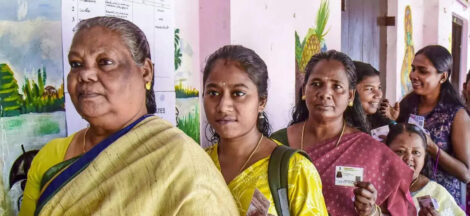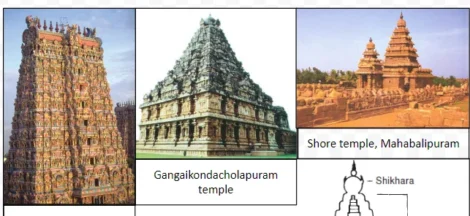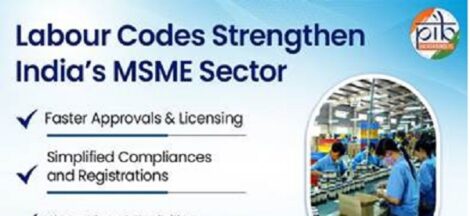By
Nitya Chakraborty
Prime
Minister Narendra Modi has broken his mounabrata by giving an extensive
interview on New Year’s Day to ANI which elaborates in a big way his strategy
to fight the Lok Sabha polls in April/May 2019. Three things are clear. First,
the Prime Minister will keep the pot boiling for the BJP and its allies on the
Ram Mandir issue till the elections. Expectations will be roused to rally the
Sangh Parivar activists, but the PM may not take the final plunge before the
Poll as is being demanded by the VHP and the RSS as also Shiv Sena. He will try
to keep his appeal to the moderates who think that India needs a strong
political leader and Modi has those elements.
Second,
he will target the Congress and Rahul Gandhi and try to create a big division
in the opposition ranks. PM might use all the powers of the Government to
delink Mayawati, K Chadrasekhar Rao, Navin Patnaik and AIDMK factions from any
approach by the opposition, especially the Congress. Third, the PM has taken
his lessons from the results of the recent state elections He has identified
the farmers distress and the disenchantment of the jobless youth with the BJP
government. He will take immediate remedial measures to improve the stock of
his government and the BJP through the interim budget to be presented on
February 1.
Prime
Minister Narendra Modi is certainly authoritarian but the authoritarians are
also go getters and that way, the PM fully aided by the BJP president Amit Shah
will make desperate efforts to ensure that the BJP retains its power for the
second time at the centre. So the Congress president Rahul Gandhi is facing a
Prime Minister who knows his job and is determined to take corrective measures.
The PM is slightly down but he has the capacity to make a turnaround before the
elections. This scenario gives the Congress and the opposition little scope to
make any mistake that will be taken advantage of by the PM and the BJP
leadership. Rahul has emerged as the natural leader of the opposition after the
success in the three BJP ruled states of Madhya Pradesh, Rajasthan and
Chhattisgarh but that does not lead to a situation where he can be projected as
the Prime Minister candidate of the opposition before the poll.
So
far the Congress President has shown maturity in dealing with the PM issue. He
has said a number of times that the PM ship is not the issue now, nut he should
not also allow others, belonging both to his own Party or to the opposition
like DMK and Telugu Desam to publicly
mention him as the potential PM candidate. This official declaration by
the Congress President is very important at this stage to forge opposition
unity on solid basis and frame foolproof strategy for defeating the BJP led NDA
in the elections. As both the Trinamool Congress leader Mamata Banerjee and the
CPI(M) general secretary Sitaram Yechury have said “ let the opposition fight
the poll unitedly to the extent possible, the leadership issue will be decided
only on the basis of the poll results”. So just three months before the Lok
Sabha elections, it is imperative that the Congress and the opposition decide
officially that the issue of the Prime Ministership will be decided in the
light of the poll results. This should be the starting point of the opposition
unity efforts and the first point of the proposed three point programme.
The second point of the programme
should be not to be too ambitious and make all efforts to make national
alliance. The alliance of anti- BJP parties should be best tried at the state level. It will
vary from state to state. For instance, if for any reason, the BSP and the SP
are not able to bring Congress in its fold, it should not disturb the alliance
efforts in other states. In Lok Sabha, in marginal seats, even small support
base of the smaller parties should matter for the Congress as the main party
challenging the BJP in that particular state. The objective should be to
prevent the division of the anti-BJP votes. The regional parties have their own
state compulsions and the pressure from their respective support bases. The
Congress has to be prepared to recognize this ground reality and adjust the
seat sharing process to the maximum benefit of the opposition.
The
most pragmatic course for the anti-BJP parties will be to follow a two track
approach in respect of alliances. Under this, The Congress will be the leader
in the states where it is fighting the BJP as the major party. It will be
having adjustments with the smaller parties but finally the responsibility will
be with the Congress as the leader. But in the states, where the regional
parties are the rulers like West Bengal, Odisha and Andhra Pradesh, the
regional parties naturally will not leave space to the Congress in the name of
anti-BJP alliance and there the fights between the regional ruling party and
the Congress can take place in Lok Sabha poll, but the understanding will be to
be a part of anti-BJP alliance in post poll situation.
Even
under this two track approach, there is a possibility of a common opposition
candidate in about 400 plus seats leaving about 143 seats out of the total of
543 seats. If a total unity of the opposition parties is made possible against
the BJP in 400 seats, there is every reason to believe that the opposition
should be able to gain more than 272 seats from this 400 figure and the seats from
the other 140 seats where triangular fights might take place, will be
additional. The opposition need to remember that 31 per cent was the vote share
Modi polled at the height of his popularity in 2014 and he is today much less
popular and the opposition‘s starting percentage is 69 per cent if they have
one common candidate against the BJP.
The third point of the opposition
programme should be to prepare a real pro-people minimum common programme .As
the leading party of the opposition, the Congress has to offer a real
alternative to deal with the present farmer’s distress and the joblessness. The
Congress manifestoes for the state assembly elections, especially of
Chhattisgarh, contain a number of welcome features. The national manifesto must
have the imprint of the new economic approach of Rahul Gandhi. It should
demarcate the Congress from the era of Manmohan Singh-Chidambaram. Rahul has
talked of fighting crony capitalists. He should reorient the Congress manifesto
by incorporating fresh ideas. Rahul Gandhi must convey how socio political
rifts translate into economic barriers and how the economics of tolerance
builds new social and cultural bridges. The Congress manifesto has to be the
anchor of the secular economic alternative of the opposition which will
challenge the Modi way of development through crony capitalism and economic
bigotry.
For Rahul, his time has come. The country is watching closely whether he
can be a game changer in 2019 India. (IPA
Service)
The post Oppostion Has To Adopt Three Point Programme To Unseat Modi appeared first on Newspack by India Press Agency.



